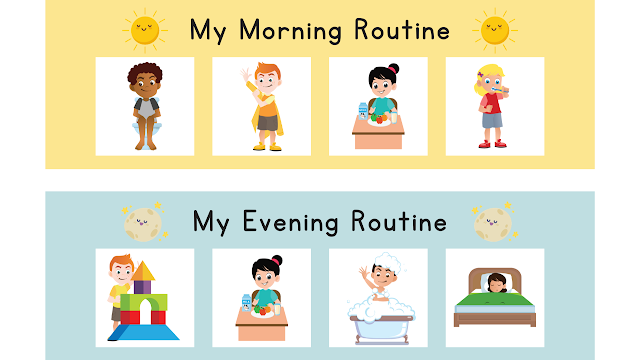For children on the autism spectrum, routines are more than just a schedule — they are a source of comfort, structure, and security. A predictable daily routine can help reduce anxiety, support learning, and make transitions smoother. Whether you're a parent, caregiver, or educator, building a strong daily routine can truly make a difference in a child’s day-to-day life.
🧠 Why Routines Matter
Children with autism often thrive on predictability. Sudden changes can lead to sensory overload, confusion, or meltdowns. A routine gives them a sense of control and helps them understand what to expect, making the world feel more manageable.
🌅 Sample Daily Routine Ideas
Here's a general outline of a routine that can be tailored to your child’s age and needs:
Morning:
-
Wake up at the same time each day
-
Use visual schedules for steps like brushing teeth, getting dressed, and eating breakfast
-
Include calming music or a preferred sensory activity before heading out or starting school
Midday:
-
Lunch and bathroom breaks at consistent times
-
Use timers or transition cues (e.g., a gentle bell or visual countdown) between activities
-
Allow for sensory breaks, such as swinging, jumping, or quiet time in a tent
Afternoon:
-
Homework or therapy sessions (if applicable)
-
Provide choices when possible (e.g., “Would you like to draw or do puzzles?”)
-
Snack and movement breaks help maintain focus and reduce fatigue
Evening:
-
Wind-down activities such as reading, quiet games, or favorite shows
-
A consistent bedtime routine (bath, pajamas, brushing teeth, storytime)
-
Use of weighted blankets or soothing music to aid in sleep
🔄 Tips to Build a Routine That Works
-
Start small: Begin with just a few activities and gradually build a full-day routine.
-
Use visuals: Picture schedules, charts, and visual timers can help children follow routines independently.
-
Be flexible when needed: While structure is essential, it’s okay to adapt routines to accommodate changes.
-
Prepare for transitions: Use countdowns, transition warnings, or social stories to make changes less stressful.
-
Celebrate consistency: Praise or reward following the routine, even in small steps.
❤️ Final Thoughts
Daily routines create a foundation for confidence, learning, and emotional regulation. While no two children are the same, consistency with love and flexibility can go a long way in helping autistic kids flourish. Start small, stay patient, and remember — every small step forward is a big success.

Comments
Post a Comment